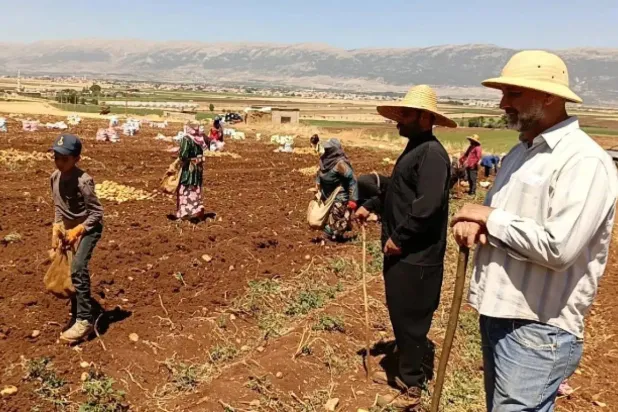Indications that Saudi Arabia is moving to lift its ban on agricultural imports from Lebanon and bolster trade with Beirut have rekindled hopes for new opportunities, particularly in the farming sector that has suffocated in recent years after drug smuggling networks exploited it to traffic narcotics.
Tony Tohme, head of the Economic Committee at the Chamber of Commerce, Industry, and Agriculture in Zahle and the Bekaa, said the expected Saudi move to end the ban on Lebanese agricultural exports “marks a highly significant development and a major boost for the Lebanese economy.”
He told Asharq Al-Awsat that the step is “a positive measure that has long been awaited and one we have worked for through long and continuous meetings, because it reopens the largest and most important market for Lebanese agricultural production.”
Tohme stressed that “Lebanon paid a heavy economic price because of the ban,” noting that the Bekaa, which makes up 43 percent of the country’s territory, “was directly affected because thousands of families rely on agriculture as their main source of income.” He added, “The entire economic cycle is disrupted when the agricultural sector declines.”
Losses Worth millions
Before 2021, agricultural exports to the kingdom ranged between 40 million and 50 million dollars a year. These exports were part of wider economic activities that were also hit by the ban, including land transport linked to shipments to Gulf countries. Lebanon’s trade deficit reached nearly 885 million dollars in 2024, according to estimates by the ministries of industry and agriculture and the chambers of commerce.
Land and sea shipping
Tohme said the ban not only blocked the entry of goods into Saudi Arabia, “but also barred Lebanese trucks from transiting Saudi territory toward other Gulf markets.”
Exporters were therefore forced to rely on costly sea freight, which he said was unsuitable for fresh produce that loses quality during long transport times and arrives in bulk, causing sharp price drops.
He said lifting the ban “will not only revive Lebanese vegetables and fruits but will also restore balance to the land transport sector, especially refrigerated trucks, which collapsed entirely after the ban and the halt of overland passage through Saudi Arabia.”
“We hope the decision will be issued soon as indicated by recent signals,” he said, adding that the step “will have positive repercussions on the entire Lebanese economy and will restore vitality to a whole sector that thousands of Lebanese depend on.”
He added, “We are fully prepared to cooperate to ensure the quality of exports and protect the reputation of Lebanese agriculture.”
Market reopening brings farmers back to life
In a related context, Ibrahim Tarshishi, head of the National Farmers’ Union, said Saudi Arabia’s announcement of its readiness to reopen its markets “brought hope back to the agricultural sector after three and a half years of losses.”
He told Asharq Al-Awsat that farmers received the news “with immense joy and great longing for the return of normal relations with the kingdom.”
Tarshishi said Lebanon previously exported “between 500,000 and 550,000 tons a year” before the figure dropped to “between 200,000 and 300,000 tons” after the ban, a loss of more than 50 percent of export volume.
He said the kingdom “has historically been the primary market for Lebanese agricultural products,” noting that “entire crops stopped being planted because they were destined for Arab markets, such as lettuce which cannot withstand sea transport.”
Tarshishi said lifting the ban “is not merely an economic measure but a key to a comprehensive solution,” adding that it “signals a restoration of confidence in the Lebanese state and in the security agencies that uprooted the dealers and smugglers who harmed Lebanon and its relations with its Arab brothers.”
He said, “When the kingdom opens its doors, other Arab doors open with it. This Saudi initiative is a step of a thousand miles, one that we hope will restore relations to their highest levels for the benefit of Lebanon, the agricultural sector and all Lebanese.”
